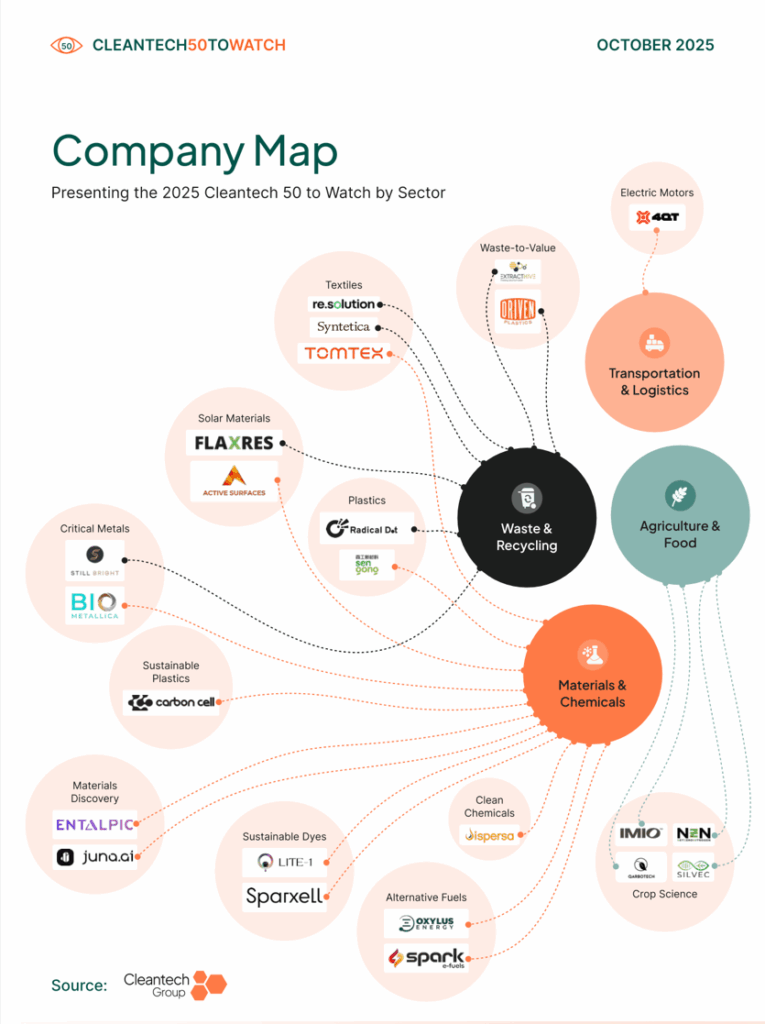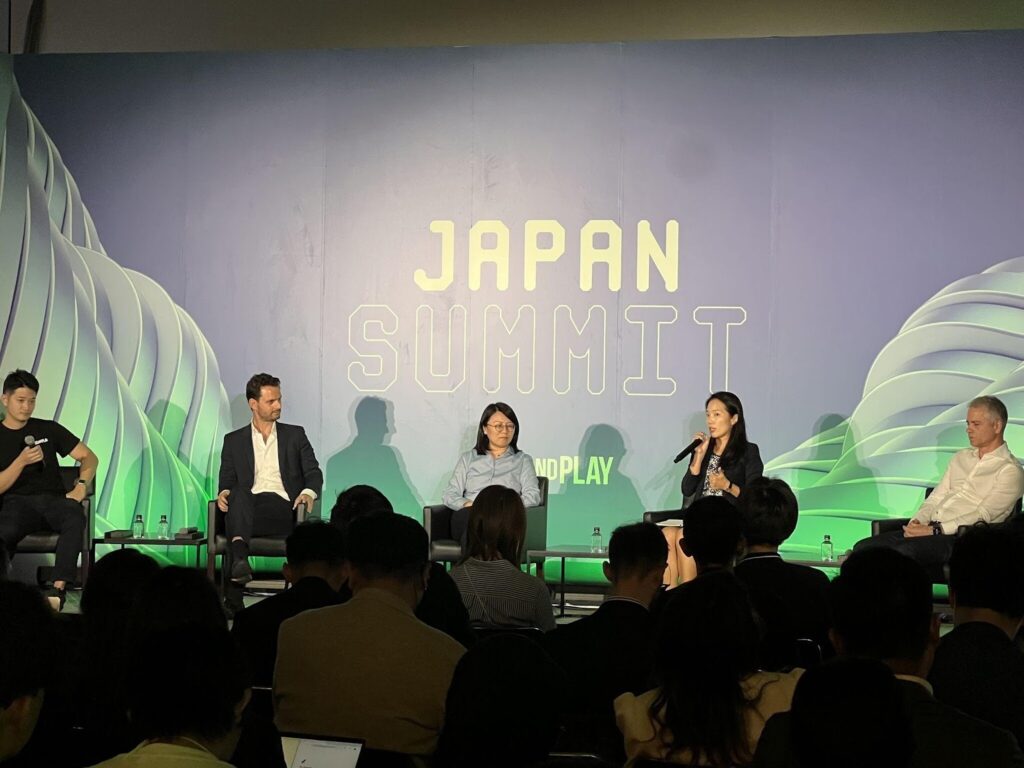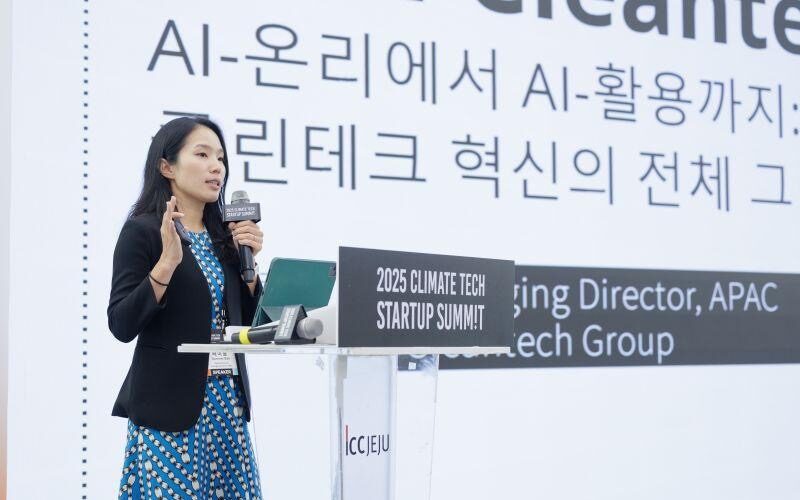By Aileen Anthony
The Clean Transition, From Fossil Dependency to Scalable Innovation

According to Bae, the clean transition begins with a simple but transformative shift: “It’s about moving away from fossil fuels toward low-carbon or no-carbon technologies—clean molecules that reduce or eliminate emissions.” While that idea may sound broad, Cleantech Group has spent the past 23 years shaping it into measurable, marketable action.
“We’re not just a market intelligence firm,” she said. “We’re helping decision-makers see what technologies are scalable, where capital should flow, and what innovation will truly shift the needle.” With over 41,000 startups and 7,000 investors connected through their platform, Cleantech Group provides both the map (data) and the compass (human insight). Their role isn’t to passively observe the market—it’s to steer it toward meaningful breakthroughs actively.
“The next five years are decisive,” Bae emphasised. “Innovation doesn’t grow like a plant on its own. It needs the right ecosystem.”
What comes next is a strategic pivot. Cleantech Group is moving from simply “tracking trends” to “building the conditions for innovation.” This includes supporting talent development, unlocking capital, and enabling progressive policy—all to fuel the next wave of climate technologies that can scale across borders.
For Asia Pacific, particularly Southeast Asia, this change in posture is essential. The ecosystem here, as Bae pointed out, is still relatively young compared to Europe and the US, but it has no shortage of potential.
Spotlight on Qarbotech: The Power of Elegant Simplicity

Among the 3,000 applicants to Cleantech Group’s “50 to Watch” list for 2025, only three companies from Southeast Asia made the list, and among them, a single one from Malaysia—the only one listed under the Crop Science category—Qarbotech.
Based in Selangor, the startup was recognised for its nanocarbon-based photosynthesis enhancement technology, a biocompatible, circular solution that boosts crop yields while reducing agricultural emissions.
“Qarbotech stood out for its elegant simplicity,” Bae said. “It’s deep science, yes, but also intuitive. It doesn’t contain chemicals; it’s carbon, derived from agricultural waste, that enhances photosynthesis naturally; a solution that’s truly circular in nature.”
She likened it to giving plants a ‘vitamin pill’ to boost their health without introducing harmful substances. “It bridges climate mitigation and food security. That’s a rare and powerful combination.”
Beyond the science, Bae highlighted its low-cost, scalable model as a huge plus. “This is something that can scale across Southeast Asia.”
From Local Genius to Global Impact: The Road Ahead
While many startups have carved out a strong early-stage identity, Bae was candid but firm about the next step. “There’s no magic shortcut. But what’s needed now is a global mindset—understanding different markets, solving problems beyond Malaysia, and engaging with new investors who can bring the technology to Brazil, Africa, or anywhere with a similar agricultural context.”
She cautioned against the trap of staying within familiar circles: “Stop talking to the same people. Step out. You need to build partnerships in places that seem foreign. That’s how global scaling starts.”
But her most practical advice is deceptively simple: visibility. “Too many startups assume people understand their tech. But if you don’t put your impact in numbers and publish it clearly, it’s hard for anyone to take notice.”
Why Measurable Impact Matters, From Day One
Bae stressed that the Cleantech Group doesn’t just evaluate novelty. “We look at three things: technology, transformation, and the ability to scale. Impact is about enabling others to do something differently.”
Citing Qarbotech again. “They provided numbers to substantiate their claim of up to a 60% increase in yield. And their ability to capture up to 20% of sunlight compared to the usual 4%. That’s tangible. Investors need these kinds of numbers.”
Her call to action: “Start thinking from day one about what success looks like in numbers. Put those numbers on your homepage through case studies, for example. Your idea is not a business until you do that.”
Southeast Asia’s Role, From to Market Creator
Bae acknowledged tremendous untapped potential in the region but also fragmentation. “Southeast Asia could be a climate tech hub, if we collaborate enough. For example, she illustrated, imagine if Singapore’s deep tech paired consistently with Malaysia’s manufacturing strength.” She believes that a “born here, scaled globally” model is within reach if more companies adopt a regional lens early on.
A Global Mindset is Not Optional, It’s Survival
In a message to founders, Bae returned to the idea of “thinking global from day one.” A global mindset is not a luxury; it’s a necessity. “Your local market may not be able to sustain you. You have to compete globally. And for that, you need to appear, speak, and act like a global player.”
Looking Ahead: Cleantech Forum Asia 2026 and Beyond
As part of Cleantech Group’s ongoing efforts, the Cleantech Forum Asia will return to Singapore in May 2026. The event will feature an innovation showcase for APAC startups and provide the networking opportunities that many founders desperately need.
Bae hopes more Southeast Asian companies step forward. “These forums are where capital flows begin. If you’re serious about scale, you have to show up, speak clearly, and dream bigger.”
From Insight to Action

Through her calm, reflective candour Bae embodies a rare kind of leadership, one that is deeply technical, empathetically aware, and globally strategic. Her message is clear, that the next chapter of cleantech isn’t just about technological breakthroughs—it’s about building bridges of collaboration that connect Southeast Asia’s potential with the world’s most pressing challenges.









